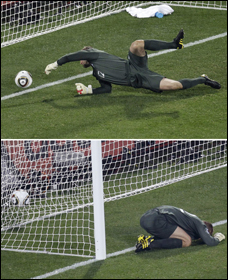This slideshow requires JavaScript.
The children in Spain are spoiled!!! I know this broad statement is going to get me flack in Spain and the US, but I have overwhelming empirical evidence (I am a professor after all) that children in Spain are indulged to the extreme. Know let me be clear, “overindulgence” of children’s behavior is tied into all sort of socio-cultural-economic assumptions regarding what is “proper” behavior for a child and parent to engage in, especially in pubic spaces.
I being a Black American of a certain age come from the perspective of “spare the rod, spoil the child”–otherwise known as child abuse in the US now. But, I also understand that the way Black Americans born during the era of enforced segregation and pre-Civil Rights legislation engaged in child rearing practices designed to keep their children alive when they left the house and encountered White people in social situations. Because incorrect behavior around White people could get you slapped at best and killed at worst (see: http://en.wikipedia.org/wiki/Emmett_Till). This reality resides in my DNA, my wife’s DNA, and the DNA of all Black parents I know over 40.
It is a little different for White people in the US, who Blacks often look upon as being “overindulgent” with their children (see the comedy routines of most Black comedians, especially Bernie Mac—may he rest in peace). In fact, their was one incident when my wife and I were coming back from the Tom Joyner cruise several years ago and the child of a White parent was engaging in loud obnoxious behavior on a morning we had all stayed up the night before enjoying the festivities. Finally, the mother swatted the child on his rear and the entire line (several hundred strong) broke out in applause!
But, even by normal US White people standards, whom believe in “timeouts” and maintaining children’s “self-esteem”, Spanish kids are spoiled. On the metro, at a restaurant, in the supermarket children can be seen “wilding” and the most they will receive is a smile not only from the parent, but too from the adult the kid almost knocked over. I see parents walking their kids to school in the morning and THE PARENTS ARE CARRYING THE KIDS BACKPACKS! Dominique asked me once why I did not carry her backpack and I gave her one of those looks that quickly told her “don’t even think about trying to go there with me”.
I have noticed an extreme patience with children and Spaniards seem attracted to children, even when they are not thier own. Countless people (strangers) have reached down and touched Dominique’s cheek, looked in her eyes and said; “¡Qué guapa!” Yes, as a person from the US I wondered where their hands had been and why they where touching my child. But, I have adjusted and come to understand unless I want to invest a fortune in hand sanitizer and cause an international incident that I needed to let it go.
Also, I have noticed that children in Spain feel “safe”. They routinely walk up to strangers and have no fear of exploring their world. I set on the train and starting with the 6 year old on my left and spreading to her 8 year old sister and eventually involving the 12 year old friend who was being cool in a seat across the aisle, we began playing peek-a-boo for 6 train stops. When the seat on the other side of me opened up one 8 year old came and set on the other side of me. And the 12 year old began to mimic every move I made. The whole time we where giggling and laughing the mothers did not raise an eyebrow; there was no pulling the beautiful “fair skinned” girls away from the “scary brown man”. There were no looks of disapproval. Not once were they told to sit in their seats and behave; even when they began to sing songs for me in Spanish that I was suppose to follow along with.
OK, just for minute I want you to engage in a “thought exercise”. Try to imagine three beautiful White girls playing with a 50 year old Black man who they do not know and is obviously some sort of immigrant on a public train and everyone acting like this is the most normal thing in the world. Exactly!
So maybe this is a result of “spoiling” children in a country where children do not fear for their safety, nor are they afraid of “the other”. They have come to trust themselves and adults. They have real self-esteem, not the artificial one induced when we give trophies at soccer games for just being on the team. These kids here feel loved and that the world is theirs—and they act like it.
Maybe, I will carry Dominique’s backpack to school Monday.





